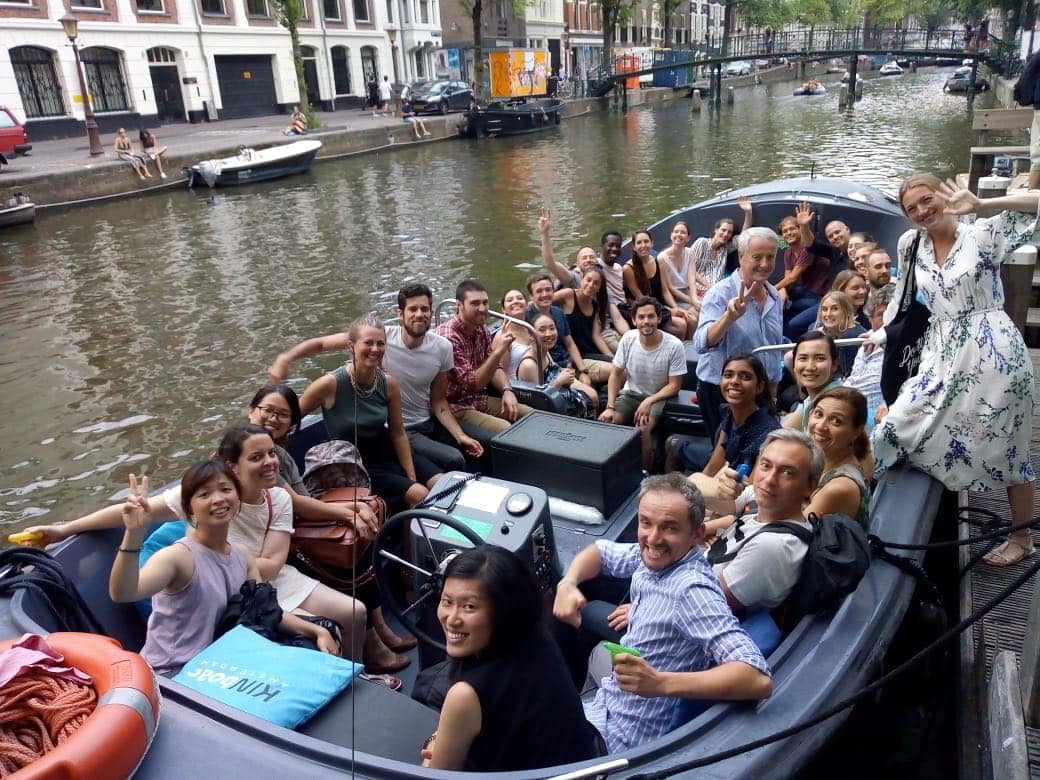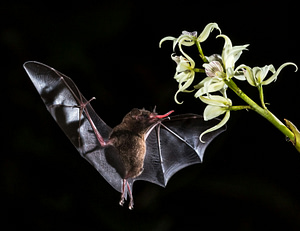The first year of the Circular City Summer School, jointly run by UvA and Metabolic, has come to a close. The final week of the course was all about circularity implementation: where theory meets practice, and where creative solutions are needed to transform a vision into reality. Inspired by their learnings, students shared impressive presentations in the course closing ceremony – and to top it off, they took to the Amsterdam canals. Student Ludovica Viva reflects on her experiences.
Day 1: Spatial implications and festivals as testbeds for the circular city
The week started with a very inspiring morning learning about the scale of circularity. First Gerard Roemers (Summer School Academic Director and Consultant at Metabolic) explained how circularity can apply to a number of different scales, with spatial and temporal implications connected to each scale. Nadina Galle (Summer School Academic Director and Consultant at Metabolic) then dived into one specific and peculiar scale: festivals. Indeed, festivals can often resemble miniature cities and therefore represent an optimal testbed for circularity. In the afternoon, we divided into groups and proposed a circular development plan for Amsterdam’s Schinkelkwartier, based on an urban expedition that we did during the second week. Finally, students Peter Desmond and Piotr Barczak organised a Skype lecture with Alexandre Lemille, founder and Circular Value Officer of the WizeImpact and advocate for a human-embedded circular economy, the circular economy 2.0.
Day 2: Smart cities and governance
Michael Mareels (Electronics and Data Architect at Spectral) started the morning with an interesting lecture on the rise of new technologies in smart cities. After that, Mendel Giezen (Summer School Academic Director and Assistant Professor Sustainable Urban Development at UvA) told us a bit more about governance in circular cities, focusing specifically on the concepts of liability and responsibility. Next we were tasked with a group assignment: a presentation on our vision for the circular city. The students formed six teams and the afternoon was completely dedicated to preparing for the big closing presentation that would happen at the end of the week!
Day 3: ‘Real-life’ implementation
In the morning, Gerard Roemers showed us some practical examples of circularity implementation at the regional and urban scale. Then, Chandar van der Zande (Project Manager and Consultant at Metabolic) gave us an engaging lecture on the societal aspect of circularity, explaining social challenges but also benefits of its real-life implementation. After lunch, the class was once again busy with preparing our group assignments.
Day 4: Resilience
Our last day was full of emotions! In the morning, Nadina Galle gave us a lecture on how re-naturing cities can make them more resilient and liveable. Then, all the academic directors, Nadina, Gerard and Mendel gathered for a final interactive session where we discussed how we as students can apply the things learned during this summer school in our lives and careers.
After lunch, the groups had some time to rehearse their presentations in preparation for the closing event at the Amsterdam Academic Club that evening. Here the six groups followed PechaKucha style in presenting their collective visions of circular cities. They presented to the public as well as to some honoured and special guests, including Marieke van Doorninck, Amsterdam’s new Alderman for Sustainability and the Built Environment. The different groups talked about waste water, mobility and biocentrism, the power of the network, the circular society and about the scale of circularity.

After the presentations and some drinks we went for a fantastic boat tour around the Amsterdam canals. Here, we were handed our summer school participation certificates, accompanied by some heartfelt dedications that made everything very emotional. Then, we continued to celebrate these fantastic weeks together by laughing, singing and dancing all night long!

To find out more about the Circular City Summer School, click here.
Read about Week One of the course.
Read about Week Two of the course.






